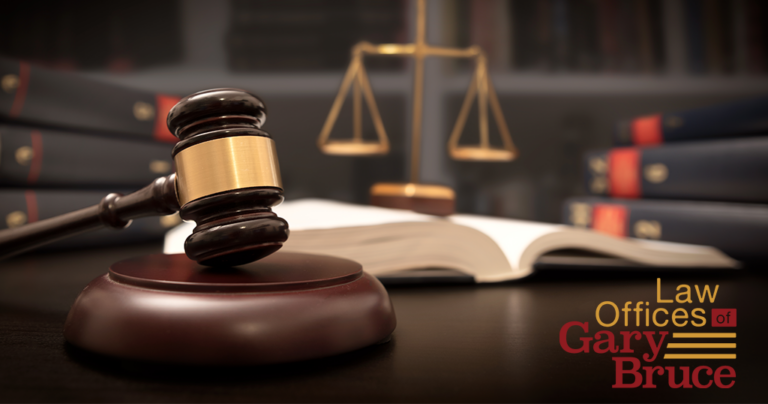Introduction
We know that there are lots of injury cases that get handled by lawyers, but a frequent question is whether all of those cases go to court. Over the years, I have heard many individuals in the Columbus area often wonder whether hiring me to help with their case means their case will end up in court. I am attorney Gary Bruce and in this blog I will hopefully put that question to rest – and explain the circumstances under which a legal case might go to trial, emphasizing the processes involved in the decision.
Trial Necessity
It’s a common misconception that all legal cases handled by lawyers end up in court. In reality, the vast majority of legal matters are resolved long before reaching the trial phase. While it is true that a large percentage of car accident claims get FILED in a court, less than 5% of civil cases actually get to go to trial. The vast majority are resolve, settled or dismissed long before a client has to take the stand in front of a jury. The point of hiring a lawyer is to minimize the possibility that your case will end up proceeding to trial while maximizing the value of the claim. And the keep insurance companies from dragging out cases, paying low settlements or delaying resolution.
WATCH: Gary Bruce discuss if all cases go to court.
Legal Processes Explained
The journey of a legal case from inception to resolution involves several stages:
- Treatment is the initial phase of the case for the client, while the attorney investigates the wreck and monitors related treatment.
- Pre-trial demands and negotiations often resolve disputes before filing a lawsuit becomes necessary. In our office, if we and our client believe it is in their best interest, an attorney prepares a demand “package” outlining the facts of the wreck, defines the injuries and treatment and demands that the insurance company pay the at-fault driver’s liability policy limits.
- If negotiations are unsuccessful, filing a lawsuit in the appropriate court may become necessary to avoid the claim stagnating.
- Once a case is filed, depositions (sworn testimony) and the gathering of evidence are critical for building a strong case, whether it ultimately goes to trial or not.
- Mediation is now commonly ordered and required and serves as a formal yet less confrontational forum for settling disputes with the help of a neutral third party. This method of alternative dispute resolution has become a favorite of judges and insurance company lawyers, because they want things resolved before a trial.
- But , to be successful, a lawyer must be ready to reject offers at mediation and prepare for a trial. Preparing for trial is essential, even for cases that settle, as it shows readiness and seriousness, potentially leading to more favorable settlement offers.
- Finally, getting on a docket for a trial can change the dynamic of negotiations, as it signals a readiness to litigate if necessary. Different judges handle their dockets in different ways; some will only move a trial date due to extraordinary circumstances, while others will move trial dates freely.
Practical Advice for Non-Lawyers
For non-professional who are trying to understand the legal challenges as their case progresses, here are some things to do to help:
- Always communicate openly with your lawyer about your goals for the case and your comfort with going to trial. Remember, most legal decisions your lawyer will make require your consent.
- Understand that settlements can often provide a quicker, more cost-effective resolution.
- Know that preparing for trial is a strategic move that can lead to better negotiation outcomes.
Local Real-Life Examples
In Columbus and Phenix City, there are numerous instances where filing a lawsuit has shifted the insurance company’s handling of a claim. For example, in local cases involving a tractor-trailer, our firm often decides to file early in the process because we want to develop the case, preserve evidence and engage decision makers who know more about the case. This often leads to the involvement of more experienced claims adjusters and lawyers- and a more serious evaluation of their damages beyond just medical bills, ultimately resulting in a better result even when the client does not want to have a trial. Litigation creates uncertainty, which is the kryptonite of insurance companies.
Conclusion: Expertise of Gary Bruce
With over 30 years of experience in the Chattahoochee Valley, the Law Offices of Gary Bruce have built a reputation for trust and effective legal representation, evidenced by strong testimonials and online reviews. We understand the intricacies of legal procedures and strive to achieve the best outcome for our clients, whether that means settling a case early or fighting it out in court. If you’re facing a legal issue, contact us for a free consultation to explore your options.
